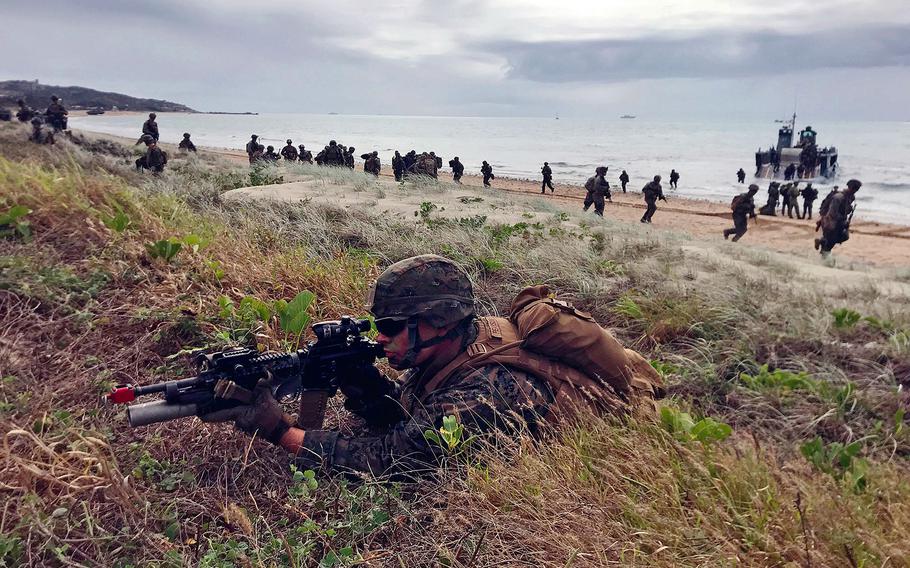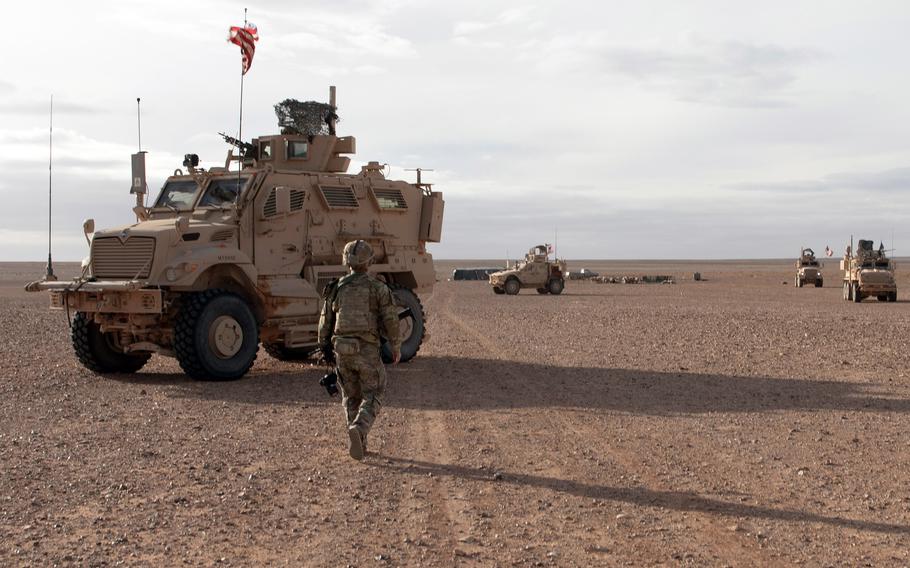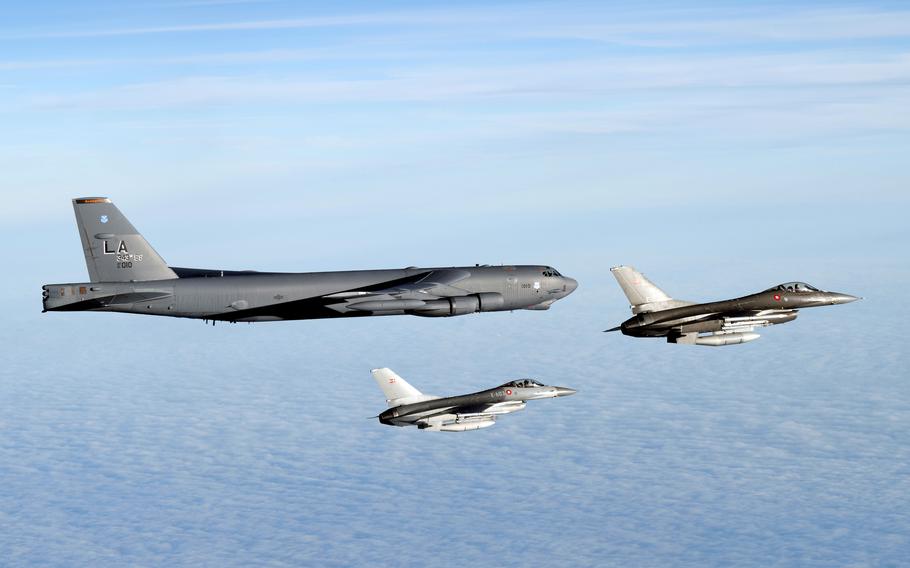
U.S. Marines secure an Australian beach during an amphibious drill in 2019. Pete Hegseth, President-elect Donald Trump's nominee for defense secretary, said he would prioritize a military buildup in the Pacific and order reviews of the U.S. force presence in Europe, Africa and the Middle East. (Seth Robson/Stars and Stripes)
STUTTGART, Germany — The prospective next Pentagon chief says he will prioritize a military buildup in the Pacific in connection with a global force review that will reassess how many troops are needed in other parts of the world.
Pete Hegseth offered a glimpse of his plans and approach to overseas operations in a 75-page written response to lawmaker questions ahead of his testimony Tuesday before the Senate Armed Services Committee in Washington.
During the hearing, Hegseth defended himself against a wide range of accusations related to his personal life and views on women in combat. But the U.S. military’s missions abroad largely were glossed over.
However, in written testimony, Hegseth put the U.S. military role in the Pacific front and center.
“We need to accelerate efforts to strengthen our force posture and increase operational capabilities in the Indo-Pacific, given China’s historic and rapid military buildup and the urgent need to reestablish deterrence,” Hegseth wrote in testimony released Tuesday.
Hegseth said he would take steps to “urgently strengthen deterrence” across the Pacific and seek funding to make a more formidable force there possible.

U.S. soldiers patrol near al-Tanf, Syria, in December 2024. Pete Hegseth, the prospective next defense secretary, said in written testimony to Congress that partners in the Middle East should be empowered to counter terrorist groups. (Trenton Pallone/U.S Army)
Hegseth stopped short of detailing what military assets he would like to move to the region, but his anticipated force posture review would impact Pentagon missions in Africa, Europe and the Middle East.
Combatant commands that oversee those regions also would be subjected to a review. Hegseth made no mention of adding or cutting resources to U.S. European, Central and Africa commands, saying instead that he would seek to get more support out of allies and partners in those areas.
But officials expected to have key roles in President-elect Donald Trump’s new administration have made clear that allies in Europe and elsewhere will need to pick up any slack that comes with a sharper military shift to the Pacific.
Hegseth reiterated that position. In the CENTCOM area, partners should be empowered to counter terrorist groups, he said.
“If confirmed, I would also look to increase regional and European cooperation in countering the Iranian (threat),” he said.
In Europe, Hegseth said allies face a threat from Russian President Vladimir Putin, who has “designs for expansion of Russian territory and influence and the degradation of the NATO Alliance.”

A U.S. Air Force B-52H Stratofortress bomber is escorted by two Danish air force F-16 Fighting Falcons above the Baltic Sea in November 2024. Defense secretary nominee Pete Hegseth said in written testimony to Congress that European allies and partners should contribute more to security matters. (Jacob Cabanero/U.S. Air Force)
The U.S. should seek to deter Russia from acting against U.S. interests in Europe but “also leverage the investments of our allies to provide for their own defense,” he said.
Such views are in line with those of Elbridge Colby, whom Trump has nominated to serve as the Pentagon’s undersecretary of defense for policy.
Colby was an architect of national defense strategy in Trump’s first term, and if confirmed he will play a key role in shaping the look of the future military footprint overseas.
Colby’s past stated position on the EUCOM mission, along with that of Vice President-elect JD Vance, is that European militaries must ramp up spending so they can provide the bulk of conventional defense forces for NATO.
While neither has called for a withdrawal from Europe, the U.S. military’s main focus on the Continent should be on providing NATO with its nuclear deterrent and other high-end capabilities, they argue.
Hegseth echoed that outlook.
“At a time when the NATO Alliance faces nuclear saber-rattling from Russia, the presence of U.S. nuclear weapons serves as an important political, strategic, and military link between America and its European allies,” Hegseth’s testimony said.